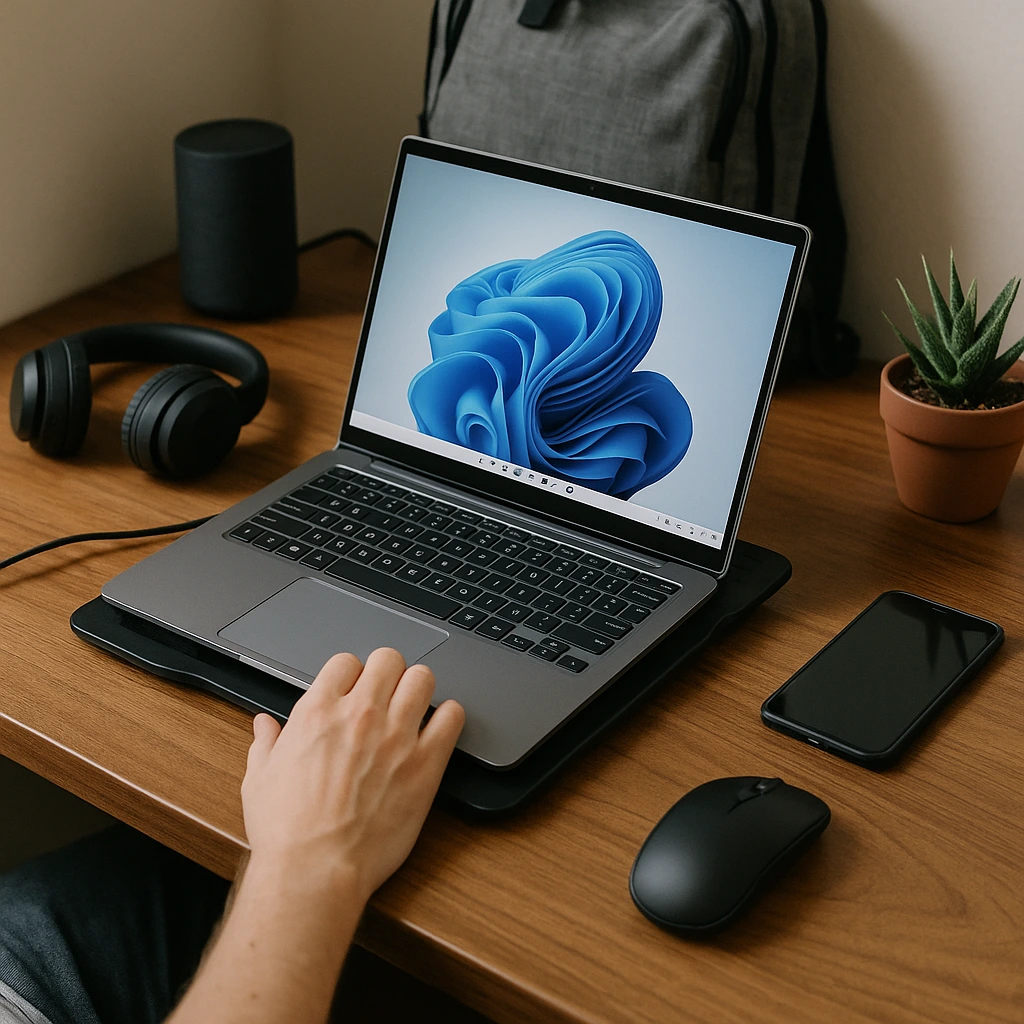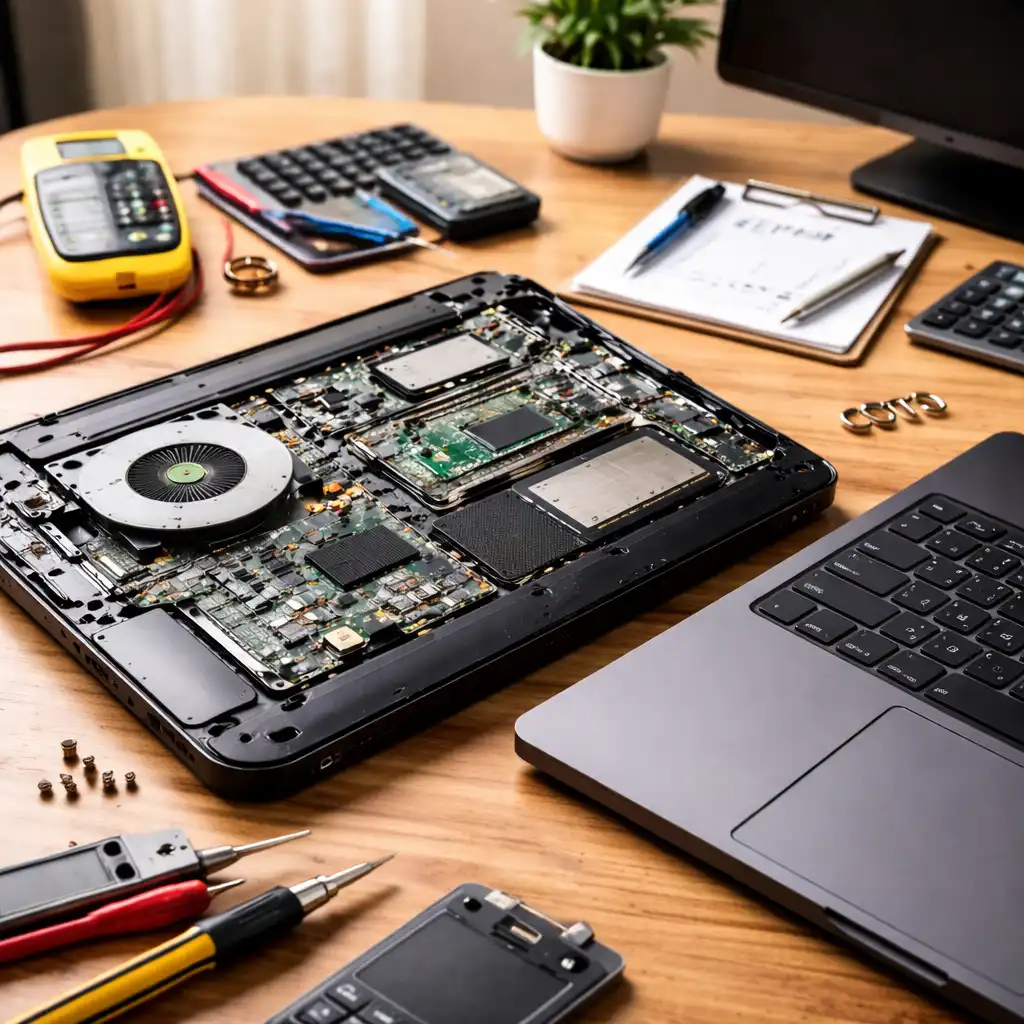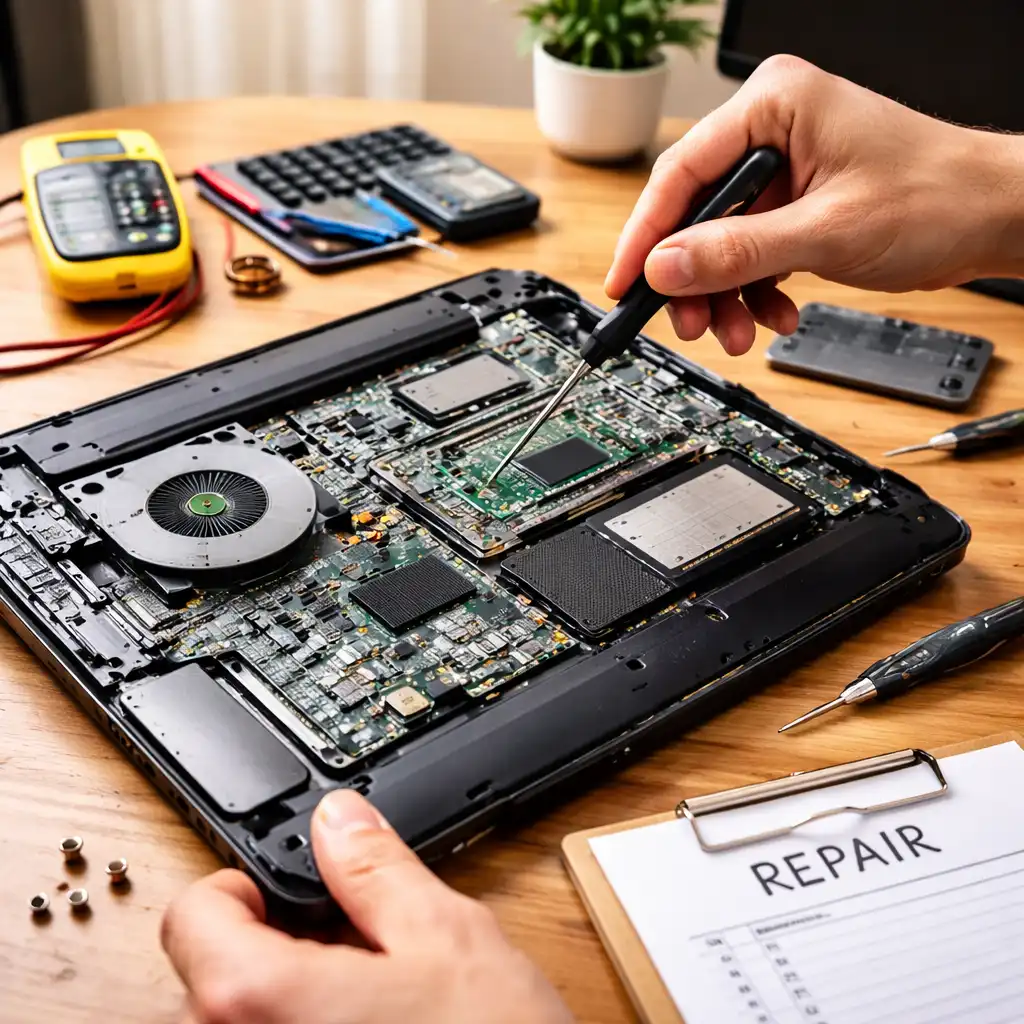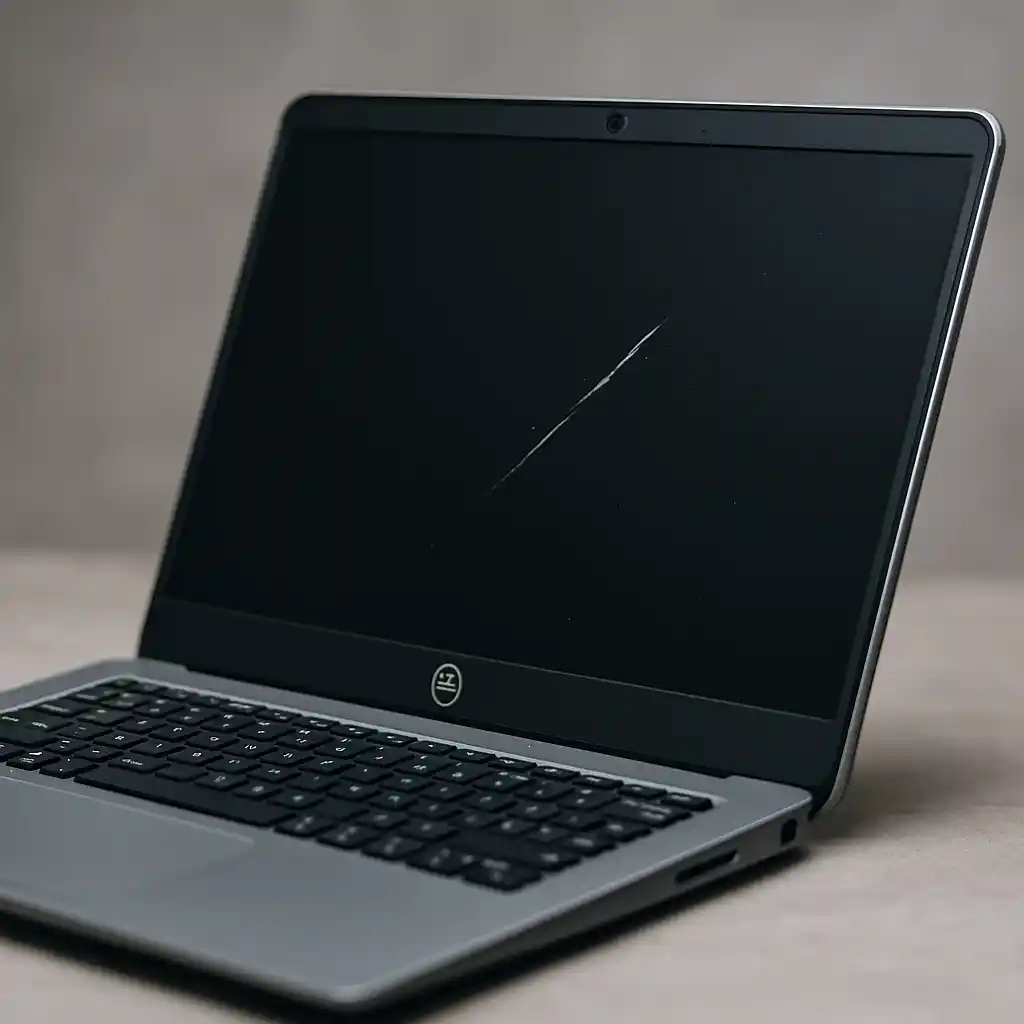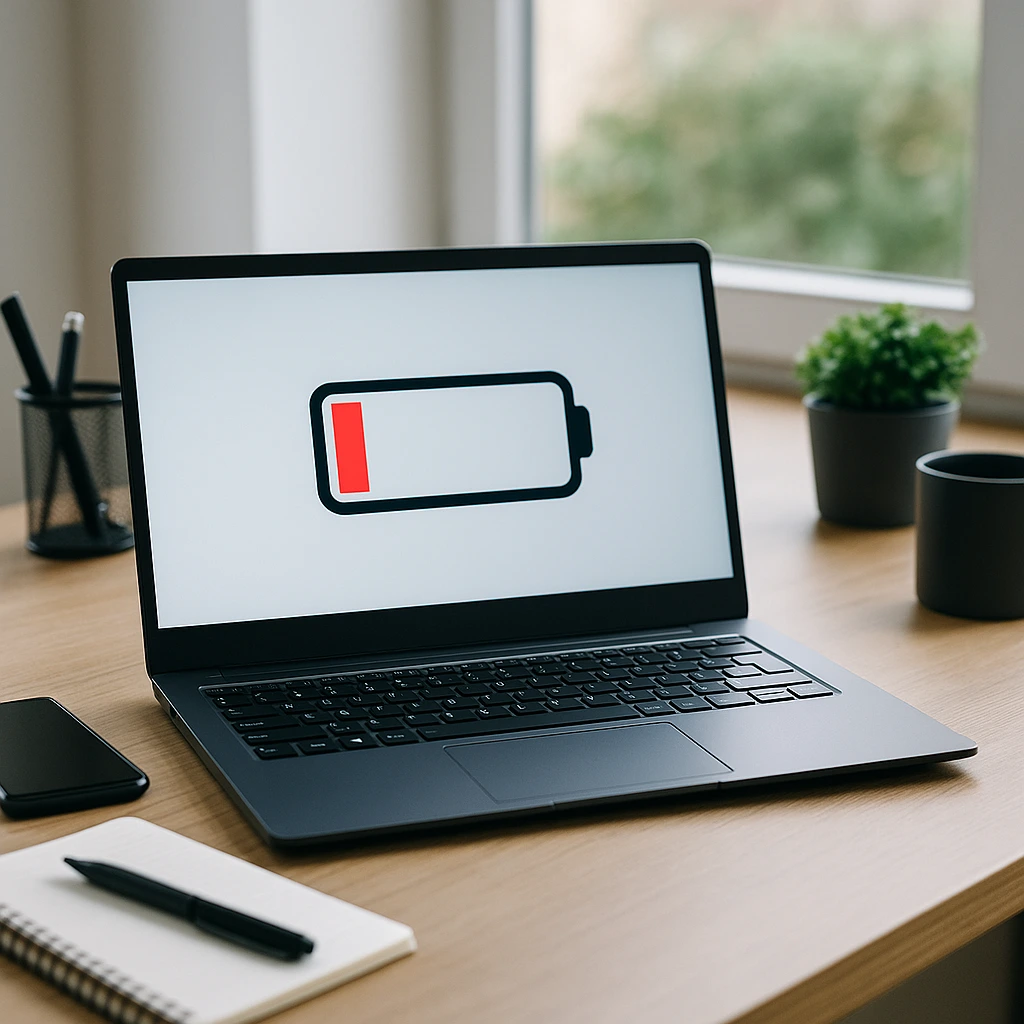How to Make Your Laptop Last Longer With Simple Everyday Habits
Disclosure: This post contains affiliate links. LaptopVoyager.com participates in the Amazon Associates Program and may earn commissions on qualifying purchases, at no extra cost to you.
Last Updated: November 2025
Your laptop can stay fast and reliable for years if you take care of it with a few simple habits. Managing heat, keeping things clean, and protecting your battery all make a noticeable difference in long-term performance—no technical skills required.
👉 If you’re also trying to avoid costly fixes down the line, this Laptop Repair and Maintenance Guide explains common wear issues and how small habits can prevent bigger problems later.
🔍 Keep Your Laptop Clean — Inside and Out
Dust collects faster than most people expect, and it blocks airflow, raises temperatures, and slowly wears down internal parts. Wipe the screen, keyboard, and touchpad with a microfiber cloth and keep the vents free of dust so the laptop can cool itself properly.
🔍 Manage Heat and Avoid Overheating
Heat is the biggest threat to a laptop’s longevity. Avoid using your device on blankets or soft surfaces that trap warm air. Hard, flat surfaces are always better. If you regularly multitask or work in warm rooms, a cooling pad can help keep temperatures in a safer range.
👉 If you’re unsure whether your laptop is running too hot, check our guide on how to know if your laptop is overheating.
🔍 Protect Your Battery Health
Batteries wear down over time, but good habits slow the process. Try not to let the battery sit at 0% or 100% for long periods. Unplug once charged, avoid heat exposure, and use battery-saver modes when possible. These small habits add months—or even years—of usable battery life.
👉 If you want to see how your battery is really doing, check our guide on how to check your laptop’s battery health properly.
🔍 Keep Your Storage Organized
A well-organized system runs more smoothly. Remove apps you don’t use, delete large files you no longer need, and keep your SSD from reaching full capacity. Leaving 10–20% free helps maintain speed and stability over time.
🔍 Update Software and Drivers
Updates patch bugs, improve performance, and keep your laptop secure. Keep your OS, drivers, and firmware up to date so the system ages more gracefully and stays reliable through daily use.
🔍 Use a Case or Sleeve for Protection
Physical protection is easy to overlook. A padded sleeve or sturdy case helps prevent scratches, bumps, and drops—damage that can slowly loosen components or affect ports over time.
🔍 Consider Upgrades (If Supported)
If your laptop allows upgrades, more RAM or a larger SSD can dramatically extend its usable life. Not all laptops support upgrades, but when they do, it’s a cost-effective way to refresh performance.
📌 Key Takeaways
- Keep vents clear to prevent heat buildup.
- Clean the laptop regularly to avoid dust issues.
- Treat the battery gently for longer life.
- Maintain free storage space on your SSD.
- Use protection when traveling.
- Stay updated for smoother performance.
🟢 FAQs
Q: How often should I clean my laptop?
Every 1–2 weeks is enough to keep dust under control and improve airflow.
Q: Do cooling pads really help?
Yes — even a small temperature drop helps internal components last longer.
Q: Is it bad to leave my laptop plugged in all the time?
Constant charging speeds up battery wear. Keeping the charge between roughly 20% and 80% is healthier long-term.
✅ Conclusion
A few simple habits can add years to your laptop’s life. Keep it clean, avoid overheating, protect the battery, and stay organized. With consistent care, your device stays fast, dependable, and comfortable to use without forcing an early upgrade.

